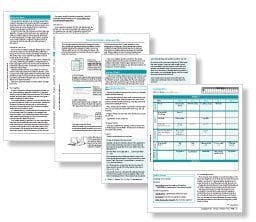Homeschooling in Connecticut: Guidance for Getting Started
This guide is packed with Connecticut homeschooling information to help you evaluate if homeschooling is right for your family. Learn what the requirements are for homeschooling in Connecticut, what you need, how to get started, and how much it could cost you. There is a list of the top Connecticut field trips and tips for choosing curriculum, too.

DISCLAIMER: This article is not written as legal advice. Check with your local school board and official Connecticut state laws before making decisions about educating your children.

Is it easy to homeschool in Connecticut?
Yes! In terms of rules for homeschooling in Connecticut, the Constitution State is a low-regulation state with very few requirements, making it relatively easy to homeschool there.
Requirements for Homeschooling in Connecticut
Connecticut homeschooling laws are a bit hazy. There are quite a few stipulations worded as suggestions that don’t carry the import of actual law. It will be up to you to read the law, interpret it as best you can with the input from your local school board representative and fellow CT homeschoolers, and then decide how much you want to comply with the suggestions.
Some homeschoolers are resistant to outside interference while others welcome the structure of a list of to-dos and guidelines. Keep reading to see which side you fall on.

The H. Family Sonlighters
What are the homeschool requirements in Connecticut?
The Connecticut Department of Education outlines these five simple steps for homeschoolers. Note that the wording actually says “It is suggested that homeschooling parents” do these things. Some CT homeschool organizations claim that these are not actual requirements at all but merely policies without the force of homeschooling laws. You’ll have to decide if you want to comply with the suggestions or not.
- If you are switching from public to homeschooling in Connecticut, first file a letter of withdrawal so there is no confusion over truancy. But if your child has never been enrolled in a CT public school, you can skip this step.
- File a Notice of Intent: Instruction of Student at Home with your local school board. (This must be done annually.)
-
Through your school year, teach these required subjects:
- Reading
- Writing
- Spelling
- English Grammar
- Geography
- Arithmetic
- U.S. History
- Citizenship (including a study of town, state and federal governments)
- Science (is recommended but not required)
You are expected to provide an education that is at least equivalent to what students in public school receive.
- The state board of education suggests (but does not mandate) that parents “keep a log of attendance which reflects days and hours of instruction.” So come up with a recordkeeping system that works for you.
- Keep a portfolio of student work, including “samples of activities, assignments, projects and assessments, as well as a log of books and materials used.” Each year, meet with local school officials to evaluate your child’s progress as evidenced by the portfolio.

The B. Family, Sonlighters from Brooklyn, CT
What proof is required for homeschooling in Connecticut?
By way of proof, your primary document is the notice of intent. Once your local superintendent signs that, be sure to keep a copy on file. Other proof includes your annual portfolio that outlines what curriculum you used and samples of your child’s work. A representative from the local school board may want to meet with you each year to go over that portfolio and confirm adequate progress.
If you want to keep additional records for yourself or in the case of an authority questioning your homeschool practice, it’s a good idea to track
- instructional days
- books you read
- field trips
To make this recordkeeping easy, use the Sonlight Planner. It was designed by homeschoolers who know what you’ll need throughout your school year.
How many days are required for homeschool in Connecticut?
There are no specific attendance requirements for Connecticuters who homeschool. The notice of intent does ask about the days in the school year, but there is no required number of instructional days or hour requirements.
As a homeschooler, you’ll find that homeschooling is incredibly efficient compared to public school, and thus the homeschool day is much shorter than a typical school day.
› Do you have to be certified to homeschool in Connecticut?
No, homeschool parents do not have to be certified or have any special credentials or level of education to homeschool their children.
› Do parents need qualifications to homeschool?
No, parents or guardians don’t have any special qualifications to homeschool as per the state of Connecticut.
› Who is eligible for homeschooling?
Any parent or guardian who can provide an education that’s equivalent to that received in a public school can opt to homeschool. While you do need to report homeschooling to your local Connecticut school board, it’s nearly seamless to start homeschooling in this state.
› Is unschooling legal in Connecticut?
Yes, unschooling is legal in Connecticut. The state makes no requirements in terms of homeschool style or methodology, so you certainly can opt for the child-led approach of unschooling as long as you are covering the required topics.
› Can I homeschool someone else's child in Connecticut?
The state of Connecticut gives parents (and guardians) the responsibility for making sure a child either attends school or is homeschooled. With that said, there are no restrictions against hiring a tutor or a teacher for your children.
Do you have to have a curriculum when homeschooling in Connecticut?
The CT Notice of Intent says nothing about a curriculum. However, the Connecticut portfolio guidelines do reference “a log of books and materials used.” So if you are using a curriculum, that’s what you’d list for this particular item in the portfolio. For example, let’s say you’re using Sonlight curriculum. You could simply print out the scope and sequence for the program you’re using and include that in your annual portfolio. Easy!
The state of Connecticut does mandate a short list of subjects to cover: reading, writing, spelling, English grammar, geography, arithmetic, United States history, and citizenship. Further, a homeschool education is expected to be at least equivalent to that received in a public school.
To see what Connecticut students learn in public school, reference these two links:
- Common Core State Standards (which CT adopted as their own state standards)
- CT Core Standards for K-3
So now that you know the rules for homeschooling in Connecticut, the decision is yours. Do you think you can effectively provide an education that meets all the standards without a curriculum? Legally, you aren’t mandated to have a curriculum. But using a homeschool curriculum is going to make life so much easier!
- You’ll know you’re covering everything you need to teach.
- You’ll save incredible amounts of time since you aren’t scouring the internet for lesson plans or pre-reading dozens of books and placing library holds.
- When someone asks about your books and materials, it’s so simple to just show them your curriculum!
The easiest solution to the curriculum dilemma is to purchase a Sonlight All-Subjects Package. It will cover everything Connecticut requires—and more!
Read the invaluable perks of Sonlight’s literature-based approach here. And then you’ll know that an online homeschool curriculum simply can’t hold a candle to a print-based, living books way of learning!
Do homeschoolers have to take standardized tests in Connecticut?
There is no mandatory evaluation or standardized testing in the Nutmeg State. If you do choose to test your children, though, put those results in your annual portfolio as additional proof of your hard work.
What do I need to homeschool my child in Connecticut?
After you’ve filed your Notice of Intent and planned how you’ll teach the required subjects, it’s time to design your day-to-day routine and organize your supplies. Here are two videos that will point you in the right direction:
Getting Starting & Timing
So, how does homeschooling actually work in Connecticut? Get the nuts and bolts details about when to start and how long you can homeschool in the points that follow.
How do I start homeschooling in Connecticut?
- First, file your Intent to Homeschool. You can get this form from your local superintendent’s office, but there’s a sample one on the Connecticut Department of Education website here.
- Then brush up on the basics with our 101 Guide to Getting Started as a Homeschooler here.
- Choose a curriculum that will cover the required topics: reading, writing, spelling, English grammar, geography, arithmetic, United States history, and citizenship.
- Come up with a system for filing items for your child’s annual portfolio. It can be as simple as a plastic tote that you toss work into throughout the year.
- Designate a spot in your home where you can organize your homeschool supplies and books. You don’t have to have a homeschool room! A shelf in your living room or dining room will suffice! You can do table work at the kitchen table and savor Read-Alouds on the couch in the family room.
At what age is school mandatory in Connecticut?
School is compulsory in Connecticut from the ages of 5 to 18.
Can you skip kindergarten in Connecticut?
Since school is mandatory from ages 5-18, kindergarten is not optional. You cannot skip kindergarten. But you can provide a kindergarten education for your five-year-old at home by homeschooling.
Consider using Sonlight’s Kindergarten Program, Introduction to the World: Cultures for your five year old. Or you may want to opt for Sonlight’s Pre-Kindergarten Package which is designed for ages 4-5.
If you’re unsure which to choose, reach out to an Advisor. They’ve helped thousands of parents choose the best fit, and their services are totally free.
How long can you homeschool a child?
You can homeschool a child from K-12 in Connecticut. Or you can opt to homeschool for only one year, starting as young as 5 or at any grade along your child’s path. How long you homeschool depends on your family’s situation.
Must-see Connecticut Field Trips for Homeschoolers
Keeping a Connecticut portfolio? Remember that field trips count as instructional days and demonstrate the multi-faceted experiences you are giving your child.
Use our free printable field trip log to keep track of each excursion you take. (This freebie is an excerpt from the Sonlight homeschool planner.)

Here are fifteen amazing Connecticut field trip locations for homeschoolers:
- Audubon Society (multiple locations)
- Beardsley Zoo
- Connecticut State Capitol
- Custom House Maritime Museum
- Dinosaur State Park
- Harriet Beecher Stowe Center
- Kellogg Environmental Center
- Mashantucket Pequot Museum
- Mystic Seaport
- Noah Webster House
- State Parks & Forests
The Mark Twain House & Museum - The Connecticut River Museum
- The Fire Museum
- Wadsworth Atheneum Museum of Art
- Yale Peabody Museum

Financial Considerations for Homeschooling in Connecticut
Suppose one of you wants to build a tower. Won’t you first sit down and estimate the cost to see if you have enough money to complete it?” Luke 14:28
Yes, there’s a cost involved in homeschooling. Besides the time you’ll sacrifice to educate your children, there are books and workbooks to purchase, extracurricular activities to finance, and field trips to enjoy. All of these take money. So let’s address the financial aspect of homeschooling.

How much does it cost to homeschool in Connecticut?
The annual expense to homeschool one child per school year costs anywhere from $500 to $2500.
Realize that there are multiple caveats to this dollar range including how old your children are, what kind of home library you already have, and how many outside activities you participate in.
To take a deep dive into the cost of homeschooling in Connecticut, read our extensive guide How Much Does Homeschooling Cost?
If the upper figure in that range is giving you panic, please realize that the younger your child is, the less money you’ll need to spend. Your curriculum is probably your largest ticket item, and there are ways to get an outstanding program while also being a careful steward of your financial resources:
- Purchase a program that is truly worth the expense.
- Choose a curriculum that you can use with multiple children at once.
- Investigate money back guarantees and payment plans.
Does Connecticut pay for homeschooling?
There is no state funding for homeschooling in Connecticut. If you choose to homeschool, you will be responsible for any expenses related to educating at home. There are neither school voucher program for homeschooling nor Connecticut grants for homeschooling.
How can I homeschool in Connecticut for free?
If you want to homeschool in Connecticut for free, you can lean on no-cost resources
- provided by the state, such as the CT Learning Hub and the Social-Emotional Learning (SEL) resources,
- available at your local library,
- or found on the internet.
But before you opt for free homeschooling in Connecticut, know that this route is costly in ways besides money. Parents whose primary goal is to spend zero dollars on homeschooling spend an inordinate amount of time piecing together freebies, downloading and printing them, and creating lesson plans.
While this DIY approach may save money, it costs dearly in terms of time and energy.
And, possibly worst of all, parents who try to homeschool for free often question the quality of the education they provide. Are there gaps? Are these freebies actually designed with sound instructional intent? Or are they merely click bait used to sell ad space?
Don’t shortchange your child and stress yourself out by trying to homeschool for free. Purchase the best pre-planned curriculum you can afford.
› Can I get money from the state for homeschooling?
No, the state of Connecticut doesn’t provide any financial resources for families who choose to homeschool.
› Is homeschooling a tax write-off?
No, homeschooling is not tax-deductible in Connecticut on state tax returns or federal tax returns. Basically, there is no tax credit or write-off for homeschoolers.
› Do I have to pay school taxes if I homeschool?
Yes, as a homeschool family you’ll still be obligated to pay your local and state taxes that support local schools. There are no exemptions for homeschoolers.
Partnering with Schools in Connecticut
There is no state policy governing public school access for homeschoolers. Don’t expect to partner with your local public school in some sort of a part-time homeschooling arrangement in Connecticut. The Connecticut homeschool laws make no provision for homeschoolers to participate in school activities.

The C. Family, Sonlighters from Stonington, CT
Christian Homeschooling in Connecticut
In your prayer times, are you feeling led to homeschool your children to bolster their Christian faith? Do you long to incorporate Bible reading, devotionals, and prayer for missionaries into your daily routine?
If yes, then you want to be a Christian homeschooler. Welcome to the fold! Sonlight has been a leading Christian homeschool curriculum for over thirty years!
Every Sonlight History / Bible / Literature package integrates Scripture reading, discussion questions from a biblical worldview, and missionary biographies. Read our goals to see if they mesh with your own.
Finding Homeschool Community in Connecticut
Looking for homeschool groups in Connecticut? Two great places to get started with your search are the two main state homeschool organizations:
They link to regional groups and also offer their own statewide support networks.
Of course, you can network with homeschoolers beyond your state as well. For example, navigate to the Sonlight Connections page where you can subscribe to the Sonlight email list, install the Sonlight app, or request to join the Sonlight Connections Facebook group.
Homeschooling High School in Connecticut
The high school years are some of the most rewarding as a homeschool parent. So don’t let credits, transcripts, diplomas, and graduation ceremonies intimidate you. You can effectively homeschool your teen through twelfth grade!
While you may question your ability to teach calculus, physics, and research paper writing, the secret is that you don’t have to be the sole teacher. You simply need to facilitate your teen’s education. Most families who are homeschooling high schoolers use a combination of at-home (often independent) study, in-person co-op classes, online courses, and dual enrollment at local colleges. There are so many options to enrich and personalize your teenager’s experience! In fact, the freedom to personalize their education is a huge advantage you have in comparison to public schools.
Homeschooling High School in Connecticut
The high school years are some of the most rewarding as a homeschool parent. So don’t let credits, transcripts, diplomas, and graduation ceremonies intimidate you. You can effectively homeschool your teen through twelfth grade!
While you may question your ability to teach calculus, physics, and research paper writing, the secret is that you don’t have to be the sole teacher. You simply need to facilitate your teen’s education. Most families who are homeschooling high schoolers use a combination of at-home (often independent) study, in-person co-op classes, online courses, and dual enrollment at local colleges. There are so many options to enrich and personalize your teenager’s experience! In fact, the freedom to personalize their education is a huge advantage you have in comparison to public schools.
Before ninth grade, develop your 4-year high school plan by outlining what courses are best for your teen. Although homeschoolers aren’t held to the public school requirements for earning credits, they can serve as a handy baseline for your own plan.
The State of Connecticut requires a student to earn 25 total credits for high school graduation:
- 9 credits of humanities, including fine arts and civics
- 9 credits of STEM
- 1 credit of physical education and wellness
- 1 credit of health education
- 1 credit of a world language
- 1 credit of diploma mastery assessment
If your teen wants to attend college, cross reference these state requirements with college entrance requirements to ensure your teen is equipped for whatever they want to pursue.
Here are three practical tips for planning your high school years as a homeschooler:
- Start with Sonlight's College and Career Planning Kit.
- Download a Sonlight High School Catalog.
- Make an appointment (totally free) to talk to an Advisor for one-on-one, personalized help.

REQUEST A FREE CATALOG
Find your ideal homeschool curriculum in the pages of Sonlight's free catalog. Browse Sonlight's award-winning literature-based curriculum and academically excellent products in all subjects—for all grades.


